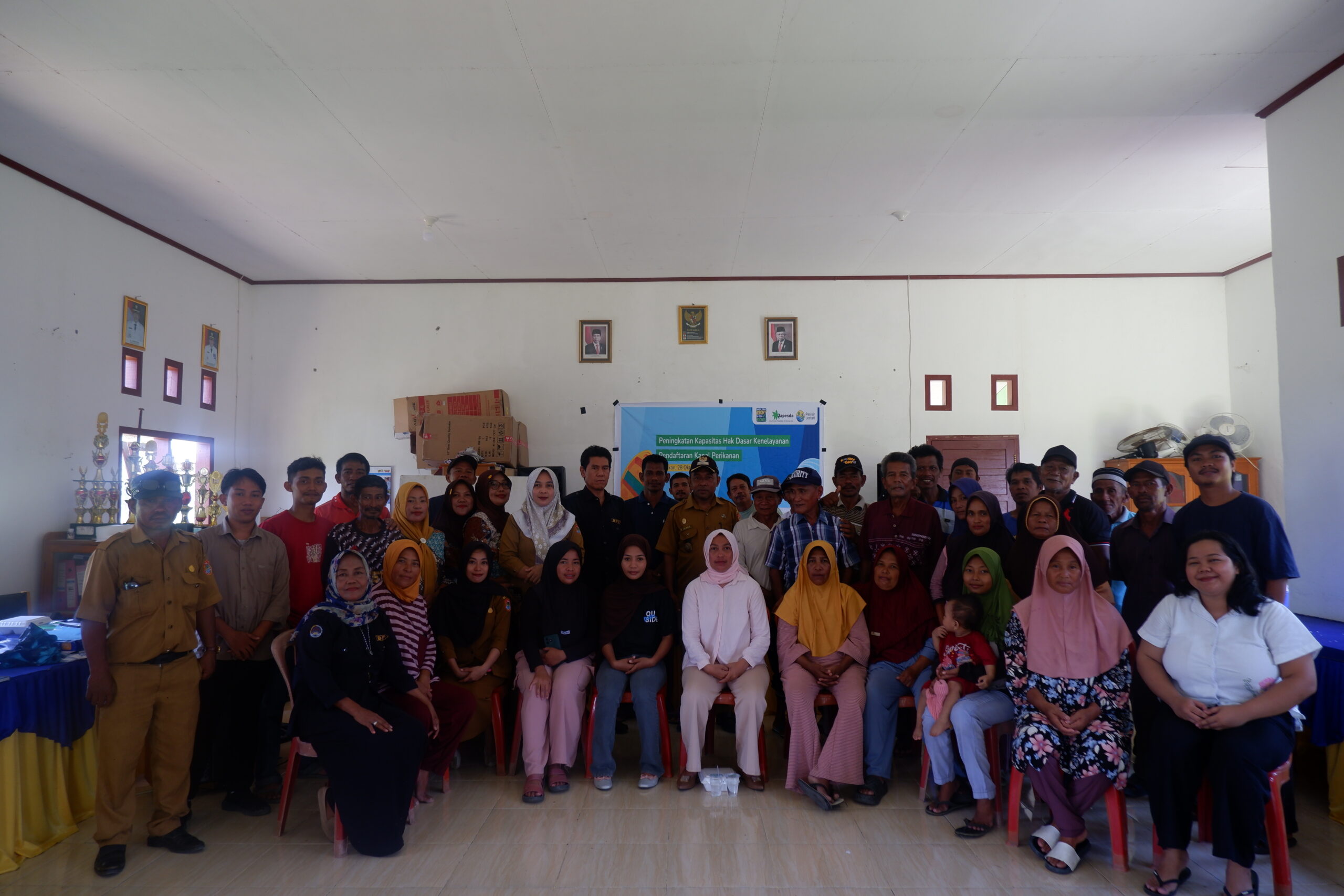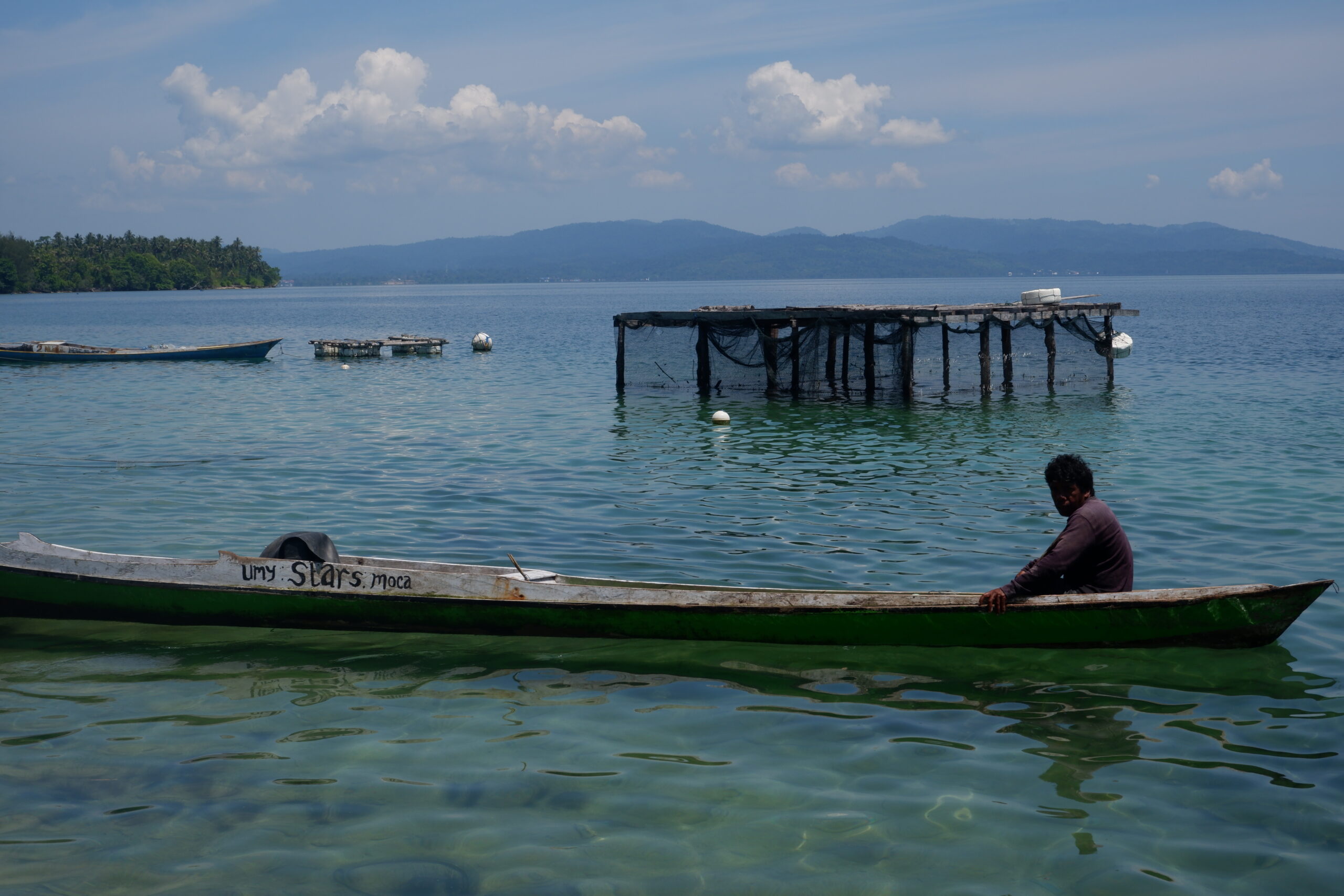Indonesia is one of the world’s largest producers of octopus, with Sulawesi waters contributing around 50% of the country’s total octopus production. The fishery is predominantly small-scale and artisanal, relying on traditional fishing methods such as handline and spear. Fishers operate small vessels under 1 Gross Tonnage (GT), and in some cases, they do not use vessels at all, instead gleaning for octopus along the shoreline during low tide. This fishery plays a vital role in the livelihoods of coastal communities across Wakatobi, Selayar, Banggai Laut, Luwuk, and Tojo Una-Una Regencies in Sulawesi waters.
Collaborative Efforts for Sustainable Solutions
Although the octopus fishery plays a significant role in Indonesia’s seafood industry, it largely operates informally, posing challenges for many fishers in terms of legal recognition, sustainability, and access to social security. The lack of proper registration and regulatory oversight have hindered opportunities for small-scale fishers to benefit from government support programs and long-term resource management initiatives. Promoting the sustainability of this fishery calls for collaborative efforts among government agencies, NGOs, and local communities to enhance governance, safeguard fishers’ rights, and integrate them into national protection frameworks.
In 2024, Pesisir Lestari (YPL) with the Octopus FIP – Consortium NGOs in Sulawesi – Indonesia conducted Social Responsibility Assessment (SRA) to look into the working conditions of these small-scale fishers. SRA serves as a complement to FIP to determine the extent of social risk in fisheries activities. The assessment identified that while there are no major findings in social risks related to forced labor, child labor, or human trafficking, the sector still faces challenges in terms of outreach and access to social protection. Many fishers operate small, unregistered vessels (under 1 Gross Tonnage), which potentially hamper their ability to obtain official recognition, fisheries subsidies and financial support.
This is certainly in line with the principles of the Global Charter for Fisheries Transparency, which emphasizes the importance of clear information and vessel registration as a form of openness and legal assurance for fishers and fisheries actors (Principle 1), and how this can contribute to strengthening their representation in inclusive policy-making processes, including the provision of various forms of support that reinforce the position of fishers, especially small-scale fishers (Principle 9).
“Most fishers understand their basic rights, like the freedom to organize and sell their catch independently. But there are still major gaps in knowledge, many don’t know how to file complaints, register their boats, or access and utilize health and employment insurance provided by the government. We need an approach that goes beyond echoing fishers capacity; one that actively involves fishers in policy planning and decision-making. Strengthening collaboration between fisher groups and the government is the key to ensuring both recognition and empowerment,” stated Faridz Fachri, Program Manager, Pesisir Lestari (YPL).
Small-scale fishers operate in an unpredictable environment, where factors such as adverse weather conditions, fluctuating octopus populations, and market price declines can lead to unstable earnings. Unfortunately, they have limited access to comprehensive social security measures, including informal employment insurance, accident coverage, and pension schemes. While informal community-based support systems exist, there remains a significant need for institutional mechanisms to ensure their long-term security and well-being.
To address these concerns, Pesisir Lestari (YPL) and partners brought together key stakeholders, including government agencies, non-governmental organizations, academics, private sectors and community representatives into a discussion via a webinar event on December, 16th, 2024. The discussions aimed to enhance understanding of the importance of social security for small-scale fishers and explore collaborative solutions to improve their access to safety nets.
 Participants of the Human Rights and Social Responsibility Policy Training, Central Sulawesi
Participants of the Human Rights and Social Responsibility Policy Training, Central Sulawesi
“Actually, we have been working to connect small-scale fishers with the national employment insurance system through BPJS, and the response has been quite positive. However, our coverage remains limited due to the challenging access, given Indonesia’s vast archipelagic geography. Cross-sector collaboration is truly needed,“ said Lili Widodo, Head of Fishers Protection Task Force, Directorate General of Capture Fisheries, MMAF
Key Challenges and Findings
One of the key takeaways from the webinar was the need for a suitable vessel registration process for small fishing fleets. By seizing the process and offering incentives for registration, formally recorded and registered to unlock opportunities (as in line with the Principle 1 and 9 of the Global Charter for Fisheries Transparency). Many fishers were perplexed as to where to start the process due to bureaucratic hurdles, thus Pesisir Lestari (YPL) initiated a pivotal step for the fisher community in Luwuk Regency together with local authority to open registration and vessel-measurement booths to provide direct access for fishers. Paralelly, a human rights and social responsibility training was conducted for the fishing communities in Luwuk, Central Sulawesi, to help them navigate the system and take advantage of existing social security programs.
Further, the discussion on webinar highlighted how legal frameworks must be strengthened to accommodate the needs of small-scale fishers, while targeted programs should be designed to facilitate their access to essential social services. Additionally, collaboration with local government and community development programs at the village and district levels will be key to improving fisher resilience and ensuring they are not left behind.
Ensuring social protection for small-scale fishers is not the responsibility of a single entity. It requires coordinated action among policymakers, industry leaders, civil society organizations, and fishers themselves. By working together, stakeholders can create a more resilient and sustainable fisheries sector where small-scale fishers are recognized, protected, and empowered to continue their vital contributions to Indonesia’s economy and food security.




